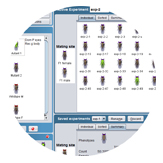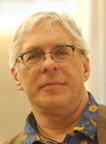Back to Education Group Seminars Page
Entries in this Seminars Archive List are organized in reverse chronological order.
You can also search for specific entries by entering a speaker’s name or a keyword in the search window above.
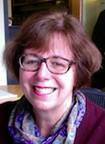
 Professor Karina Meiri and Professor Berri Jacque
Professor Karina Meiri and Professor Berri Jacque
Title: The Great Diseases Partnership: bringing cutting-edge biomedical science to the high school biology classroom
Seminar Date & Time: Thursday, May 1, 2014 @ 1:30 pm
View the slides from Professor Meiri and Professor Jacque’s Seminar
Listen to the audio from Professor Meiri and Professor Jacque’s Seminar
Dr. Karina Meiri is a Professor of Developmental, Molecular and Chemical Biology and Director of the Center for Translational Science Education (CTSE) at Tufts University School of Medicine. Dr. Berri Jacque is a Research Assistant Professor and Co-Director of the CTSE at Tufts University School of Medicine. Together Profs. Meiri and Jacque have developed a model for collaborative curriculum design and implementation using teachers and scientists. In their seminar, titled The Great Diseases Partnership: bringing cutting edge biomedical science to the high school biology classroom, they discussed how they built a year-long biology curriculum focused on the Great Diseases that teachers across the country are using to engage students in real-world science and build their knowledge of health and disease. Read more…

 Dr. Jeremy Orloff & Dr. Jonathan Bloom
Dr. Jeremy Orloff & Dr. Jonathan Bloom
Title: Flipping the Dice: An active-learning, technology-enhanced, up-to-date 18.05 (Introduction to Probability and Statistics)
Seminar Date & Time: Monday, April 7, 2014 @ 1:30 pm
View the slides from Dr. Orloff and Dr. Bloom’s Seminar
Watch Dr. Orloff’s and Dr. Bloom’s Seminar
Dr. Jeremy Orloff is an instructor in the Math Department and Experimental Study Group at MIT. Dr. Jonathan Bloom is a Moore Instructor and NSF Post-doctoral fellow in the Mathematics Department at MIT where he does research on low-dimensional topology and geometry. Together with Professor Haynes Miller, Dr. Orloff and Dr. Bloom have been working to bring flipped, active-learning classes to the Math Department.
In their seminar, titled Flipping the Dice: An Active-learning, tech-enhanced, up-to-date 18.05 (Introduction to Probability and Statistics), Drs. Orloff and Bloom discussed how they dramatically transformed the Introduction to Probability and Statistics course (MIT course 18.05) and, by doing so, revived the class from one with dropping enrollment and low student engagement. Read more…
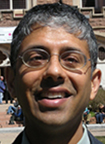 Professor Sanjoy Mahajan
Professor Sanjoy Mahajan
Title: Teaching modes of reasoning: Redesigning “The Art of Approximation in Science and Engineering” course around transferable ways of thinking
Seminar Date & Time: Thursday, February 27, 2014 @ 1:30 pm
View the slides from Professor Mahajan’s Seminar
Listen to the audio from Professor Mahajan’s Seminar
Sanjoy Mahajan is Visiting Associate Professor of Electrical Engineering at MIT, and Associate Professor of Applied Science and Engineering at Olin College of Engineering. For many years, at Cambridge and MIT, Prof. Mahajan taught the Art of Approximation in Science and Engineering (6.055J/2.038J). In his seminar, titled “Teaching modes of reasoning: Redesigning ‘The Art of Approximation in Science and Engineering’ course around transferable ways of thinking”, Professor Mahajan discussed how he Fourier transformed the course, rotating it 90 degrees so that the modes of reasoning became the primary, transferable units, and the topics became their illustrations. Read more…
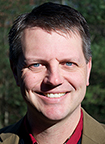
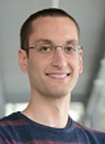 Professor David Darmofal and Dr. Chad Lieberman
Professor David Darmofal and Dr. Chad Lieberman
Title: Development of an Outcomes-based edX MOOC using LaTeX
Seminar Date & Time: Monday, December 16, 2013 @ 1:30 pm
View the slides from Professor Darmofal’s and Dr. Lieberman’s Seminar
Listen to the audio from Professor Darmofal’s and Dr. Lieberman’s Seminar
In their talk, Professor Darmofal and Dr. Lieberman discussed their on-going experience at developing and offering an edX MOOC (MITx: 16.101x Introduction to Aerodynamics). Their talk first focused on how learning outcomes can be embedded in the content not only to communicate intent and expectations, but also to provide a mechanism for students to access content by relevant outcomes. They discussed their attempts to mimic some aspects of the flipped classroom model in the on-campus subject 16.100. They considered how outcome-based tagging can be used to move towards a student assessment based on mastery of learning outcomes. Next, they discussed their attempt to mimic some aspects of the flipped classroom model that they have used in the on-campus subject 16.100. Read more…
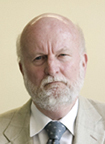 Professor John Belcher
Professor John Belcher
Title: 8.02x Online and 8.02 TEAL Residential: how each course can be used to improve the other
Seminar Date & Time: Thursday, November 7, 2013 @ 1:30 pm
View the slides from Professor Belcher’s Seminar
Listen to the audio from Professor Belcher’s Seminar
Professor John Belcher of the Physics Department is Associate Chair of the MIT Faculty. He has been the Principal Investigator on an instrument on board Voyager 1, which is now in the interstellar medium, still returning data 36 years after its 1977 launch. He was one of the leaders of the effort to introduce active learning into the freshmen physics TEAL (Technology Enabled Active Learning) course. Last spring, he was the project leader of a Physics Department effort to put Professor Walter Lewins’s spring 2002 MIT course 8.02 lectures online in an edX course, 8.02x. Professor Belcher will describe that effort and discuss the results in the context of their possible future impact on MIT residential education.
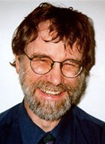 Professor Kurt VanLehn
Professor Kurt VanLehn
Title: How to build tutoring systems that are almost as effective as human tutors
Seminar Date & Time: Wednesday, June 12 @ 1:00 pm
View the slides from Professor VanLehn’s Seminar
Listen to the audio from Professor VanLehn’s Seminar
Kurt VanLehn is the Diane and Gary Tooker Chair for Effective Education in Science, Technology, Engineering and Math in the Ira A. Fulton Schools of Engineering at Arizona State University (ASU). He received a Ph. D. from MIT in 1983 in Computer Science, was a post-doc at BBN and Xerox PARC, joined the faculty of Carnegie-Mellon University in 1985, moved to the University of Pittsburgh in 1990 and joined ASU in 2008. He founded and co-directed two large NSF research centers (Circle; the Pittsburgh Science of Learning Center). He has published over 125 peer-reviewed publications, is a fellow in the Cognitive Science Society, and is on the editorial boards of Cognition and Instruction and the International Journal of Artificial Intelligence in Education. Dr. VanLehn’s research focuses on intelligent tutoring systems and other intelligent interactive instructional technology.
 Professor Michelle Smith
Professor Michelle Smith
Title: Identifying and Changing Persistent Conceptual Difficulties in Biology
Seminar Date & Time: Monday, May 13 @ 2:00 pm
Listen to the audio from Professor Smith’s Seminar
Michelle Smith is an Assistant Professor at the University of Maine in the School of Biology and Ecology and the Research in STEM Education (RiSE) Center. Her work focuses on how to help students learn biology and instructors adopt promising educational practices in their classrooms. Specifically, she is interested in investigating conceptual difficulties in genetics, determining what makes peer discussion an effective learning tool in both large-lecture and small-enrollment courses, and collaborating with biology instructors on science education research questions in an effort to facilitate course transformation. Michelle earned a B.A. in biology from Hanover College, an M.S. in biology from the University of Dayton, and a Ph.D. in biology from the University of Washington. She also was a Science Education Initiative postdoctoral fellow at the University of Colorado-Boulder. Read more…
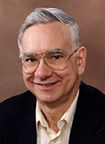 Professor David Pritchard
Professor David Pritchard
Title: Data Mining in 6.002x Informs On-Campus Education
Seminar Date & Time: Thursday, April 18 @ 2:00 pm
View a movie of Professor Pritchard’s Seminar
During his talk, Professor Pritchard discussed how Massive Open Online Courses (MOOCs) offer a new window for observing student learning behavior. His work examines how the 108,000 participants in the inaugural edX course, 6.002x – Circuits and Electronics, allocated their time amongst the various course components, including reading the textbook, solving homework problems, and viewing TA’s instructional videos, and the fraction of each they accessed. He discussed how student behavior differs when solving homework problems in comparison to exam problems, and that the course format strongly influences reading of the e-text. Read more…
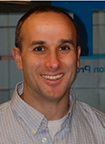 Professor Eric Klopfer
Professor Eric Klopfer
Title: Learning Games are Hard Fun
Seminar Date & Time: Friday, February 1, 2013 @ 1:30 pm
View the slides from Professor Klopfer’s Seminar
Listen to the audio from Professor Klopfer’s Seminar
Eric Klopfer is Professor and Director of the Scheller Teacher Education Program (STEP) and The Education Arcade (TEA) at MIT. Professor Klopfer is also the co-founder and President of the non-profit Learning Games Network. Professor Klopfer’s research focuses on the development and use of computer games and simulations for building understanding of science and complex systems. Read more…
 Professor Chris Dede
Professor Chris Dede
Title: How Immersion in Virtual and Augmented Worlds Helps Students in the Real World
Seminar Date & Time: Friday, September 28, 2012 @ 2:00 pm
View the slides from Professor Dede’s Seminar
Listen to the audio from Professor Dede’s Seminar
Professor Chris Dede is the Timothy E. Wirth Professor in Learning Technologies at Harvard’s Graduate School of Education. His fields of scholarship include emerging technologies, policy, and leadership. His current research includes seven grants from NSF, Qualcomm, the Gates Foundation, and the US Department of Education Institute of Education Sciences to explore immersive simulations and transformed social interactions as means of student engagement, learning, and assessment. In 2007, he was honored by Harvard University as an outstanding teacher, and in 2011 he was named a Fellow of the American Educational Research Association. Read more…
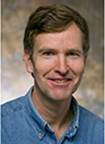 Dr. Scott Freeman
Dr. Scott Freeman
Title: Evidence-based Teaching in Introductory Biology
Seminar Date & Time: Wednesday, September 19, 2012 @ 1:00 pm
View the slides from Dr. Freeman’s Seminar
Listen to the audio from Dr. Freeman’s Seminar
Dr. Scott Freeman is a Senior Lecturer in Biology at the University of Washington (UW), where he teaches introductory and upper-division courses. Since the mid-1990s, his focus has been on textbook writing and teaching. He co-authors Evolutionary Analysis and is sole author of Biological Science; both texts are in their 4th edition. Dr. Freeman is also the recipient of a UW Distinguished Teaching Award. His research focuses on how active learning techniques impact student performance. Read more…
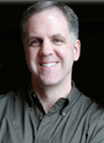 Professor Scott Strobel
Professor Scott Strobel
Title: Undergraduate Project Ownership through the Discovery of Microbial and Chemical Diversity
Seminar Date & Time: Wednesday, May 23, 2012 @ 2:00 pm
View the slides from Professor Strobel’s Seminar
Listen to the audio of Professor Strobel’s Seminar
Professor Scott Strobel is the Henry Ford II Professor of Molecular Biophysics and Biochemistry at Yale University and a Professor of the Howard Hughes Medical Institute. In 2006 and again in 2010, he was named a Howard Hughes Medical Institute Professor to promote efforts in undergraduate science education. Read more…
 Professor Jonathan King
Professor Jonathan King
Title: Resistance to Expanding and Enhancing STEM Education: from Colonial Times to the Present
Seminar Date & Time: Monday, May 14, 2012 @ 2:00 pm
View the slides from the Professor King’s Seminar.
Professor Jonathan King is a Professor in the Biology Department at MIT. His research laboratory focuses on the genetic control of protein folding and virus assembly. In addition to his research interests, Professor King has been a long-time advocate for public understanding of science and he has been intimately involved in science curriculum and development initiatives for both K-12 and undergraduate education throughout his academic career. Read more…
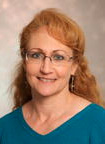 Professor Jo Handelsman
Professor Jo Handelsman
Title: Engage to Excel: A National Perspective on Science Education
Seminar Date & Time: Friday, March 16, 2012 @ 2:00 pm
View the slides from Professor Handelsman’s Seminar
View the Executive Summary of the Engage to Excel Report
Professor Jo Handelsman is a Howard Hughes Medical Institute Professor in the Department of Molecular, Cellular and Developmental Biology at Yale University. Her research laboratory focuses on microbial communities within the caterpillar gut and their roles in infectious disease. As an HHMI Professor, Professor Handelsman’s education research focuses on applying the scientific methods utilized in the research laboratory to the classroom. She developed a “toolkit”, based on evidence-based studies, to improve undergraduate science education by incorporating active learning, mentoring, diversity and self-correction into the classroom. Read more…
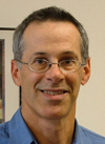 Professor David Walt
Professor David Walt
Title: Research as a Goal of Education and Education as a Goal of Research
Seminar Date & Time: Friday, February 17, 2012 @ 3:00 pm
View the slides from Professor Walt’s Seminar
Listen to Professor Walt’s Seminar
Professor David Walt is a Robinson Professor of Chemistry, Professor of Biomedical Engineering, and Professor of Oral Medicine at Tufts University and is a Howard Hughes Medical Institute Professor. As an HHMI Professor, he engages undergraduates in developing multi-year research projects. Undergraduate, graduate, and postdoctoral researchers in the Walt Laboratory also design experiments for high school students and assist in training high school science teachers. Professor Walt’s goal is to share contemporary, engaging science with students who ordinarily would not encounter it. During the talk, Professor Walt will describe two open-ended experiments designed by teams of undergraduate students. He will also describe the team of Tufts students, faculty, staff, and high school science teachers and administrators who pilot-tested and implemented these week-long experiments in 11 classrooms, and the results from high school students’ written assessments and feedback from the team. Read more…
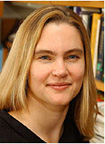 Professor Catherine Drennan
Professor Catherine Drennan
Topic: Strategies for teaching in classrooms with ever increasing diversity
Seminar Date & Time: Thursday, November 10, 2011 @ 2:00 pm
View the slides from Professor Drennan’s Seminar
Professor Catherine Drennan is a Professor of Chemistry and Biology at MIT. She is currently an Investigator and a Professor of the Howard Hughes Medical Institute (HHMI). In 2006, Professor Drennan was awarded an HHMI Professorship to fund a proposal entitled “Getting Biologists Excited about Chemistry,” which focuses on increasing the interdisciplinary crosstalk between biology and chemistry. One of the aims of the HHMI initiative is to enhance the freshmen Chemistry course at MIT (5.111) by incorporating biological examples into the course. Under this initiative, Professor Drennan, along with Dr. Elizabeth Taylor, created over 30 succinct (2-5 minutes) modular in-class examples for MIT’s introductory chemistry course (5.111) that relate basic chemistry concepts covered in general chemistry to biology topics. Read more…
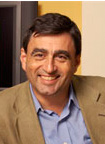 Professor Eric Mazur
Professor Eric Mazur
Title: Confessions of a Converted Lecturer
Seminar Date & Time: Thursday, October 13, 2011 @ 2:00 pm
View the slides from Professor Mazur’s Seminar
Professor Mazur is an eminent physicist and a national leader in science education. In 1991 he began developing an interactive teaching method for large physics courses called Peer Instruction. This interactive teaching method, detailed in his book Peer Instruction: A User’s Guide Manual, can bring about deep understanding as students are challenged during class to solve problems on their own and then to continue discussing their solutions, ideas, and strategies in small collaborative groups. Peer instruction has revolutionized science education and has been widely adopted across different science and engineering fields nationally and internationally. Professor Mazur is also pushing the frontiers of technology in the classroom as he further develops peer instruction techniques. Read more…
 Professor Jeffrey Miller
Professor Jeffrey Miller
Topic: Integrating Undergraduates into Educationally Meaningful Research Programs and Courses
Seminar Date & Time: Monday, October 3, 2011 @ 2:30 pm
View the slides from Professor Miller’s Seminar
Professor Jeffrey Miller, of the Department of Microbiology, Immunology and Molecular Genetics at UCLA, is widely recognized for his efforts to engage undergraduates in research from the start, which he believes is the key to attracting students to careers in science. He has been involved in the creation of numerous innovative biology courses aimed at making biology relevant and interesting to students. One example is “I, Microbiologist” – a discovery-based research course for first-year undergraduates created by Professor Miller and fellow UCLA Professor Erin Sanders-Lorenz. Their inspiration for this course was Court TV’s “I, Detective” program, which allows viewers the opportunity to solve real crimes by following clues and analyzing evidence. Read more…
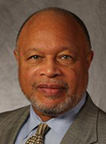 Dr. James Wyche
Dr. James Wyche
Topic: Broadening Participation Across the Education and Research Enterprises
Seminar Date & Time: Thursday, July 21, 2011 @ 3:00 pm
View the slides from Dr. Wyche’s Seminar
Dr. James Wyche is the Provost and Chief Academic Officer of Howard University. His seminar addressed issues surrounding the underrepresentation of people of color in the fields of science, technology, engineering, and mathematics. Dr Wyche has participated in analysis and policy recommendations regarding this subject and is co-founder of The Leadership Alliance, a consortium of 23 leading research and teaching colleges and universities (including Howard University) dedicated to improving the participation of underrepresented students in STEM area graduate programs and career paths. Read more…
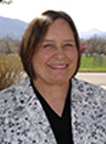 Dr. Laura Border
Dr. Laura Border
Topic: Teaching is an Intellectual Act: Sharing Faculty Expertise & Research with Graduate Students
Seminar Date & Time: Wednesday, May 25, 2011 @ 2:30 pm
View the slides from Dr. Border’s Seminar
Dr. Laura Border is the Director of the University of Colorado-Boulder’s Graduate Teacher Program (GTP), a truly model program that supports the professional development of graduate students, postdocs, and faculty interested in improving their teaching and mentoring skills. The GTP offers several teaching certification programs, including the Preparing Future Faculty program for graduate students and postdocs planning to pursue an academic research career track. Another of GTP’s initiatives is the Lead Network, consisting of graduate students who are selected by faculty in their home department and trained to lead other graduate students in teaching recitations, labs, and classes in their home departments. The Lead Network was cited as a “Best Practice” in the Woodrow Wilson Foundation’s study of graduate education in the United States, The Responsive PhD: Innovations in U.S. Doctoral Education, and has won the TIAA-CREF Theodore M. Hesburgh Award for Exceptional Faculty Development Programs. Read more…
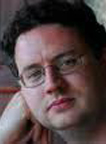 Dr. Gaël McGill
Dr. Gaël McGill
Topic: Molecular Movies: Exploring Hollywood’s Tools for Biovisualization
Seminar Date & Time: Thursday, May 5, 2011 @ 3:00 pm
3D visualizations have become an integral part of experimental biology and can serve as powerful tools of intuition as the need to integrate information from diverse fields becomes paramount. Cellular and molecular visualizations play invaluable roles in science education, and can also directly inform the research and discovery process. Dr. McGill discussed ongoing visualization research in this area, with focus on how he and colleagues are adapting Maya – one of the entertainment industry’s workhorse software packages – for biovisualization. Read more…
Professor Mike Klymkowsky
Seminar Topic: Bioliteracy, Concept Inventories, & Beyond… or how I evolved from a simple scientist to someone interested in effective science education
Seminar Date & Time: Friday, April 22, 2011 @ 2:30 pm
Watch Professor Klymkowsky’s Seminar
View the slides from Professor Klymkowsky’s Seminar
Professor Mike Klymkowsky of the University of Colorado’s Molecular, Cellular, and Developmental Biology Department is Co-Director of the CU Teach Program. His education-related research focuses on student understanding of foundational concepts in the biological sciences. He has developed a Biology Concept Inventory (BCI) that can be used in learning assessment and has performed extensive work in the study of bioliteracy and in creating virtual laboratories that are freely available online. Read more…
“Not until the core concepts of biology are clearly defined and become the focus of instruction and assessment can we expect meaningful improvements in biological literacy and the removal of unnecessary barriers to student engagement.” – Professor Mike Klymkowsky
 Professor Rich Losick
Professor Rich Losick
Seminar Topic: Hands-on Learning and Diversifying Science
Seminar Date & Time: Friday, April 15, 2011 @ 2:00 pm
View the slides from HHMI Professor Losick’s Seminar
Watch Professor Losick use a crab claw to illustrate the structure and function of bacterial RNA polymerase!
In his research lab within the Department of Molecular and Cellular Biology at Harvard University, HHMI Professor Rich Losick works closely with students, helping them to investigate bacterial cell division, sporulation, and biofilms. Outside of his laboratory, Professor Losick also displays a profound dedication to mentoring young scientists, both through the courses that he develops and teaches at Harvard University and in his HHMI-funded work to help promising undergraduate students from disadvantaged backgrounds succeed in science and math-related fields of study. Read more…
“Science and teaching go hand-in-hand. I am a better teacher for being a scientist. But I am also a better scientist for being a teacher.” — Professor Rich Losick
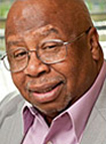 Professor Isiah Warner
Professor Isiah Warner
Seminar Topic: Hierarchical Mentoring: An Academic Support System that Integrates Research, Education, and Peer Mentoring
Seminar Date & Time: Thursday, January 27, 2011 @ 11:00am
View the slides from HHMI Professor Warner’s Seminar
Professor Isiah Warner is a prolific analytical chemist who has also won accolades for his teaching and mentoring. With his 2002 HHMI Professor grant, Professor Warner set up a mentoring program at Louisiana State University for first-year science, technology, engineering, and math (STEM) undergraduates who show promise but are struggling in their courses. Teaching students how to be good mentors themselves is a critical component of Warner’s program. Read more…
*****
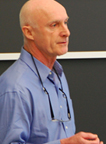 Professor Patrice Thiriet
Professor Patrice Thiriet
Seminar Topic: 3D visualizations enhance Anatomy & Physiology curriculum
Seminar Date & Time: Wednesday, January 26, 2011 @ 10:30am
View a Sample Video from the Lyon1 Anatomy Video Collection
Professor Patrice Thiriet and artist Olivier Rastello presented their suite of 3D visualization tools for anatomy education at MIT on Wednesday, January 26, 2011. The tools were created at the University of Lyon1 in France, by a team comprised of technologists, domain experts and visual artists who have compiled an open source suite that is freely available online. The interactive tools allow students to explore various aspects of human anatomy from perspectives that were hitherto impossible. Read more…
*****

